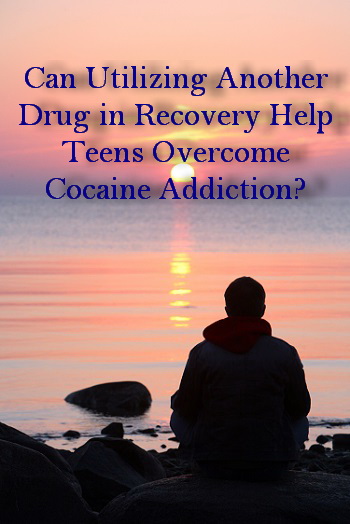Drug May Help Teens Overcome Cocaine Addiction
Teens being treated for substance addiction may soon have a new tool to combat their drug problem. A new study finds that outcomes are improved for cocaine addiction treatment when the drug Topamax is included as part of the strategy for recovery.
Treating cocaine addiction can be challenging. Teens that begin using cocaine can become addicted quickly, and when treatment is sought and completed, relapse can be common. Teens often enter into a cycle of recovery and relapse with cocaine addiction.
Addiction to Alcohol
It is common for teens addicted to cocaine to also be addicted to alcohol. Abuse and addiction of both substances can make treatment complicated. For some, the traditional route of cognitive behavioral therapy is not an effective strategy for recovery to be a permanent state.
Topamax, a drug often prescribed for the purposes of treating epilepsy and, in more recent cases, weight loss, has been shown to help those attempting recovery from cocaine and alcohol addiction.
The Study
The research team from the University of Pennsylvania School of Medicine used a double-blind, placebo-controlled design to test the effectiveness of topiramate in treating addiction, particularly in cases where cocaine addiction is complicated with a dependence on alcohol.
Previous studies have proven the effectiveness of topiramate in treating alcohol addiction. Other studies have shown that it can help prevent relapse in those who have received treatment for cocaine addiction. However, this is the first study to explore its application in treatment for a combined addiction to cocaine and alcohol.
The study’s results are critical because those who struggle with cocaine addiction commonly also struggle with alcohol dependence. Targeting the addictions as a unit may be an effective strategy to make recovery more successful.
The study was conducted over a 13-week period that included 170 individuals who met criteria for alcohol and cocaine addiction. The trial produced mixed results.
The Results
The researchers discovered that the drug was effective at reducing the cravings for alcohol, but actual drinking did not decrease. It was not found to impact cocaine cravings.
However, the study participants that were taking topiramate were more likely to remain in treatment and avoid cocaine use during the last three weeks of the trial when compared to participants who were taking a placebo.
The researchers also found that participants taking topiramate were more likely to benefit from the drug if they reported more severe withdrawal symptoms. Those who indicated a high level of restless behavior, agitation and depressed mood were more likely to report benefiting from topiramate.
Counseling and the Drug
First author of the paper, Kyle M. Kampman, M.D., professor of psychiatry and medical director at the Charles O’Brien Center for Addiction Treatment, explains that while counseling is the first choice for addiction, there are some patients who are not responsive to this strategy.
The results of the study indicate that for those who have a particularly treatment-resistant addiction, the addition of a topiramate treatment in addition to cognitive behavioral therapy may result in better outcomes.
The study’s findings add to a growing body of research that supports the use of topiramate to aid in treating addiction. A previous study conducted in 2005 provided evidence that addicts treated with the drug were able to abstain from cocaine use for three weeks or longer.
The researchers note that the failure of topiramate to reduce alcohol use was puzzling, but may be explained by the severity level of that particular group of participants. The effects may be more visible when an individual has a habit of drinking heavily.
The Test Subjects
The study’s findings were the result of a trial conducted among a group of addicts who had an average age of 45 years and which was largely composed of African-American males. The groups of men examined using the drug of treatment and a placebo were similar in terms of sociodemographic variables or drug and alcohol use.
The findings of the study were published in a recent issue of the journal Drug and Alcohol Dependence.




